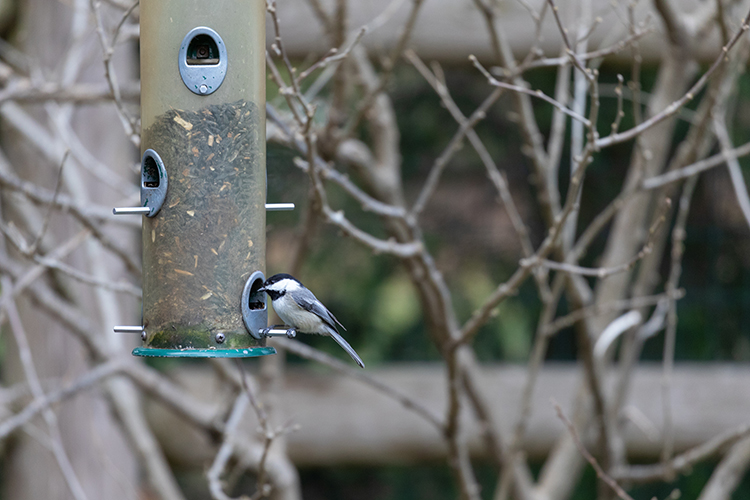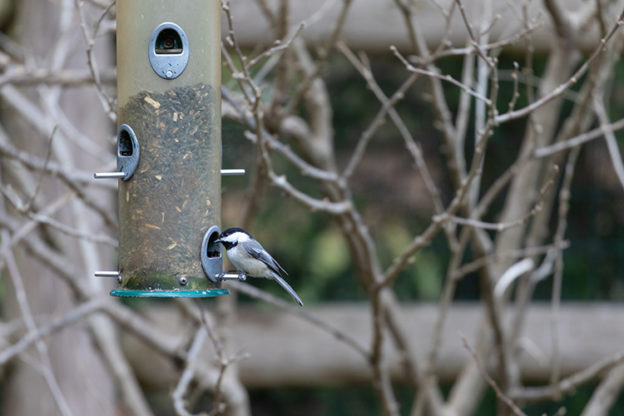Enjoying watching birds visit your feeder? Great! Make sure the birds that visit stay healthy by keeping your feeder clean.

Why a Clean Feeder is a Happy Feeder
High concentrations of birds in close proximity to one another can contribute to the spread of disease at bird feeders. The four diseases that most frequently affect birds that use feeders are: salmonella, trichomoniasis, aspergillosis, and avian pox.
All of these diseases are transmitted from one bird to another at feeding stations, especially when overcrowding occurs. Birds are also susceptible to mites and lice. There are many steps you can take to help keep feeder birds and people safe and healthy.
How to Keep Birds Healthy
- Clean feeders every 2 weeks using one part bleach to nine parts warm water. Soak the feeder in the solution for a few minutes, rinse, and air dry.
- If uneaten food is accumulating in or under feeders, consider using less food or switch to a seed more to the birds’ liking.
- If birds are fighting over space at a feeder, consider adding more feeders to alleviate the congestion that can potentially be responsible for the rapid spread of disease.
- Store seed in airtight containers to prevent spoilage.
- Avoid throwing large amounts of food on the ground or alternate ground feeding areas so that uneaten food does not accumulate and develop bacteria or mold.
- If dead birds are found, stop feeding for a few weeks and thoroughly clean feeders and areas under feeders. Use disposable gloves when handling dead birds.
Learn More
Get answers to bird feeding frequently asked questions. Still have questions? Ask our wildlife experts.




